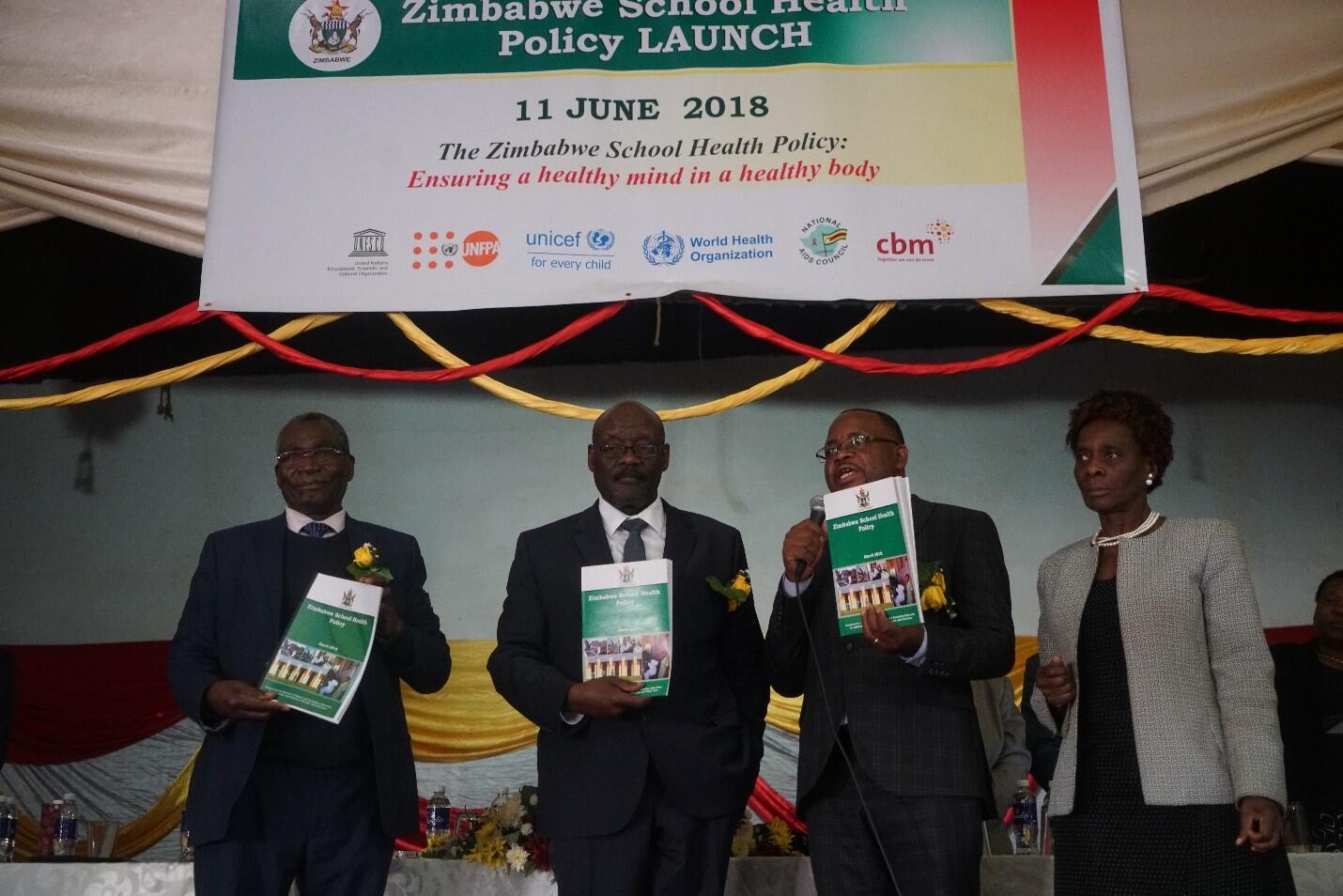Harare, Zimbabwe – 20 June, 2018 – The Government of Zimbabwe has launched the Zimbabwe School Health Policy under the theme “A healthy mind, in a healthy body.” The School Health Policy, which was jointly developed by the Ministries of Health and Child Care and Primary and Secondary Education with support from four United Nations (UN) agencies, seeks to promote good health and well-being of learners.
The agencies that supported the Government of Zimbabwe are the UN Population Fund (UNFPA) UN Education and Scientific Organisation (UNESCO), World Health Organisation (WHO) and UN Children’s Fund (UNICEF).
WFP Representative, who was acting UN Resident Coordinator at the launch, Mr. Eddie Rowe said since most adolescents and young people in Zimbabwe spend most of their time in school, implementing a strong school health programme increases the reach of health promotion interventions in this age group.
“HIV remains a significant public health concern in Zimbabwe especially among adolescents and youths, therefore, the School Health Program provides an opportunity for us to step up Comprehensive Sexuality Education and improve access to Sexual and Reproductive Health services,” said Mr. Rowe.
“The school environment should be able to promote adherence for those young people who are already on treatment. Teen pregnancy is another factor contributing to school dropouts among adolescent girls, thereby limiting a girl’s educational attainment and a violation of protection she deserves to receive.”
Addressing delegates at the launch held at Blakiston Primary School, Minister of Health and Child Care, Dr. Parirenyatwa said there is need to immediately operationalise the policy through providing the necessary guidelines, tools and supportive environment it requires. Dr. Parirenyatwa encouraged parents to support the policy while advising the Ministry of Primary and Secondary Education to internalize it for the benefit of the learners.
“A comprehensive school health programme denotes a set of policies, procedures and activities set to protect, promote and support the health and welfare of pupils and staff which include the provision of health services, healthy school environment, life skills, health education and school nutrition.”
The policy is seen as a bridge to engage the education sector in efforts to positively influence the educational, social and economic conditions that affect health. In addition, ensuring that a school-going-age population is healthy is key for the achievement of the Sustainable Development Goals (SDGs). The School Health Policy also presents an opportunity to address Neglected Tropical Diseases (NTDs) through Mass Drug Administration, Vitamin A and Iodine deficiencies; prevention of cancers such as cervical cancer through HPV vaccination among other public health interventions.
Minister of Primary and Secondary Education, Prof, Paul Mavima said “There is an interconnection between health and education. Learners cannot obtain optimal education without good health, the Health Policy will enable them to do so in line with Sustainable Development Goal 4.”
The policy envisions for “A primary and secondary education system with an enabling environment for the provision of equitable, sustainable and quality health services for all learners.” The vision resonates with the agenda for Universal Health Coverage.
UNFPA advocates for the rights of young men and women, including the right to accurate information and services related to their sexual and reproductive health. Empowered with knowledge and skills to protect themselves and make informed decisions, young people can realize their full potential and contribute to economic and social transformation. Challenges adolescents in Zimbabwe face include teenage pregnancy, sexually transmitted diseases including HIV, unsafe abortions, child marriage and lack of access to sexual and reproductive health information services.
There are existing interventions within schools such as the Guidance and Counselling learning area that seeks to empower young people with critical information about their health, especially through provision of like skills, sexuality, HIV and AIDS education. The launch of the school health policy will help strengthen such interventions.


